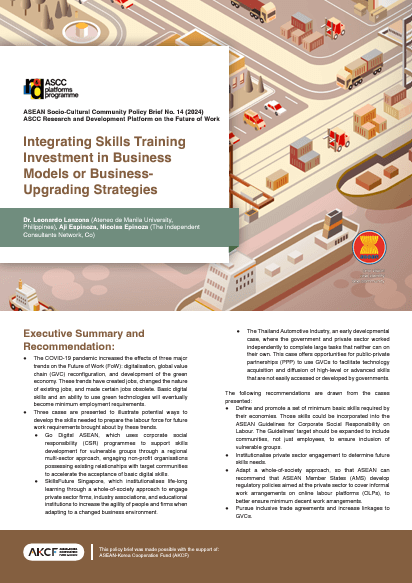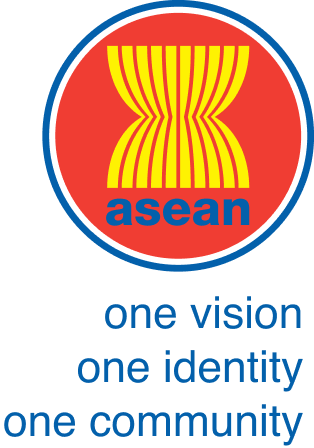

Executive Summary
- The COVID-19 pandemic increased the effects of three major trends on the Future of Work (FoW): digitalisation, global value chain (GVC) reconfiguration, and development of the green economy. These trends have created jobs, changed the nature of existing jobs, and made certain jobs obsolete. Basic digital skills and an ability to use green technologies will eventually become minimum employment requirements.
- Three cases are presented to illustrate potential ways to develop the skills needed to prepare the labour force for future work requirements brought about by these trends.
- Go Digital ASEAN, which uses corporate social responsibility (CSR) programmes to support skills development for vulnerable groups through a regional multi-sector approach, engaging non-profit organisations possessing existing relationships with target communities to accelerate the acceptance of basic digital skills.
- SkillsFuture Singapore, which institutionalises life-long learning through a whole-of-society approach to engage private sector firms, industry associations, and educational institutions to increase the agility of people and firms when adapting to a changed business environment.
- The Thailand Automotive Industry, an early developmental case, where the government and private sector worked independently to complete large tasks that neither can on their own. This case offers opportunities for public-private partnerships (PPP) to use GVCs to facilitate technology acquisition and diffusion of high-level or advanced skills that are not easily accessed or developed by governments.
Recommendation
The following recommendations are drawn from the cases presented:
- Define and promote a set of minimum basic skills required by their economies. Those skills could be incorporated into the ASEAN Guidelines for Corporate Social Responsibility on Labour. The Guidelines’ target should be expanded to include communities, not just employees, to ensure inclusion of vulnerable groups.
- Institutionalise private sector engagement to determine future skills needs.
- Adapt a whole-of-society approach, so that ASEAN can recommend that ASEAN Member States (AMS) develop regulatory policies aimed at the private sector to cover informal work arrangements on online labour platforms (OLPs), to better ensure minimum decent work arrangements.
- Pursue inclusive trade agreements and increase linkages to GVCs.
Share







